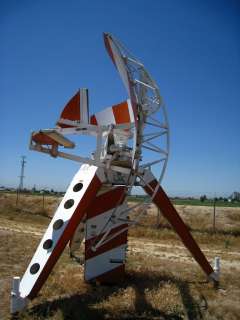AN/TPN-12
Description of the radar set, tactical-technical characteristics

Figure 1: AN/TPN-12
© 2009 www.ipernity.com
| Specifications | |
|---|---|
| frequency: | 9 000 … 9 160 MHz
( X-Band) |
| pulse repetition time (PRT): | |
| pulse repetition frequency (PRF): | 1 500 Hz |
| pulsewidth (τ): | 0.55 µs |
| receive time: | |
| dead time: | |
| peak power: | 150 kW |
| average power: | 120 W |
| instrumented range: | 40 NM (≙ 74 km) |
| range resolution: | 300 ft or 1% (≙ 90 m) |
| accuracy: | |
| beamwidth: | |
| hits per scan: | |
| antenna rotation: | |
| MTBCF: | |
| MTTR: | |
AN/TPN-12
The AN/TPN-12 is a light-weight, transportable, ground-controlled-approach (GCA) Radar Set which can function as a surveillance or Precision Approach Radar. The radar operates in X-Band.
Both antennas are reflector antennas using single curvature parabolic reflector that concentrate the energy in one dimension only. The directivity in the other dimension must be made by the horn feed. The polarisation is switcheable between linear horizontal and circular to reduce the signals returned from rain and clouds. Sensitivity time control (STC) and fast time control (FTC) circuits are included in the receiver to reduce ground clutter on the indicator.
The radar uses a PPI-scope for surveillance mode, and a beta scan scope for precision approach. For aircraft tracking during the initial approach to the airfield, the radar set is operated in the surveillance mode; the radar is then switched to the precision approach made when the aircraft makes the final approach to the runway. Since only one mode of operation is possible at a time, this equipment is suitable only for airfields having low traffic density.
In the Swedish Air Force, this radar was designated as Landningsradar PN-67/T.
Source:
- Military Standardization Handbook United States Radar Equipment Manual TM 11-487C-1 1965, p. 481ff

